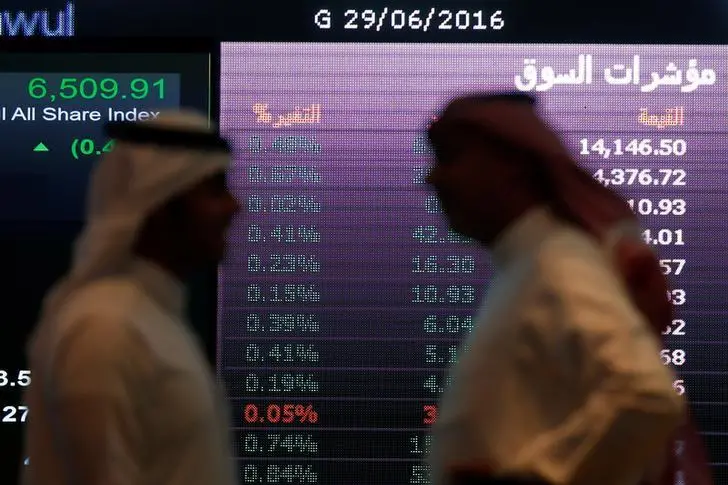PHOTO
Major stock markets in the Gulf were mixed on Wednesday amid higher oil prices, with Dubai shares rising after two days in the red, and the Saudi index retreating, while investors braced for a key U.S. inflation reading later this week. Oil prices, the main driver of the Gulf's financial markets, edged up 0.4%, with Brent trading at $85.37 per barrel by 1300 GMT.
Dubai's benchmark stock index bounced back after two straight sessions of losses, with most sectors in the green. The blue-chip developer Emaar Properties advanced 2.2% and tolls operator Salik Company gained 2.1%. Meanwhile, the United Arab Emirates has sold bonds worth $1.5 billion at a yield of 60 basis points over U.S. Treasuries after demand exceeded $5.75 billion, an arranging bank document showed on Tuesday.
The Qatari benchmark index advanced 0.6%, extending its gains to a 17th session, the longest rally in nearly 18 years. Qatar National Bank gained 0.5% and Industries Qatar climbed 2%. However, Mesaieed Petrochemical and Qatar Fuel slipped 1.9% and 1% respectively. Mesaieed and Qatar Fuel's major shareholder. energy giant QatarEnergy, on Tuesday reported a 32% drop in full-year net profit.
Saudi Arabia's benchmark stock index retreated after a previous session of gains, falling 0.6%. Al Rajhi Bank dropped 1.1% and ACWA Power declined 3.3%. However, Rasan Information Technology, Miahona and Dr Soliman Abdel Kader Fakeeh Hospital, which were all listed in early- to mid-June, advanced 5.9%, 8.9% and 2.3% respectively. The
Abu Dhabi benchmark index was down 0.4%, pressured by a 0.4% drop in conglomerate International Holding Co and a 1.5% decline in Alpha Dhabi. However, MENA's largest producer of nitrogen fertilizers, Fertiglobe, advanced 1.2%. Mitsui & Co has begun building an ammonia plant in the UAE with partners including Fertiglobe, TA'ZIZ, and South Korea's GS Energy, it said on Tuesday.
Investors are awaiting the U.S. personal consumption expenditures (PCE) price index, due on Friday, which could provide further clues on the Federal Reserve's rate cut trajectory.
Most Gulf currencies are pegged to the dollar and any change to U.S. monetary policy is usually followed by the central banks of Saudi Arabia, the UAE and Qatar.
Outside the Gulf, Egypt's blue-chip index was up for a second consecutive session and rose 0.9%. Commercial International Bank gained 1.6% and EFG Holding added 2%.
- SAUDI ARABIA down 0.6% to 11,656
- KUWAIT lost 0.9% to 7,533
- QATAR added 0.4% to 9,871
- EGYPT gained 0.9% to 27,501
- BAHRAIN lost 0.1% to 2,034
- OMAN gained 1.6% to 4,674
- ABU DHABI lost 0.4% to 8,966
- DUBAI added 0.2% to 4,006
(Reporting by Md Manzer Hussain)




















